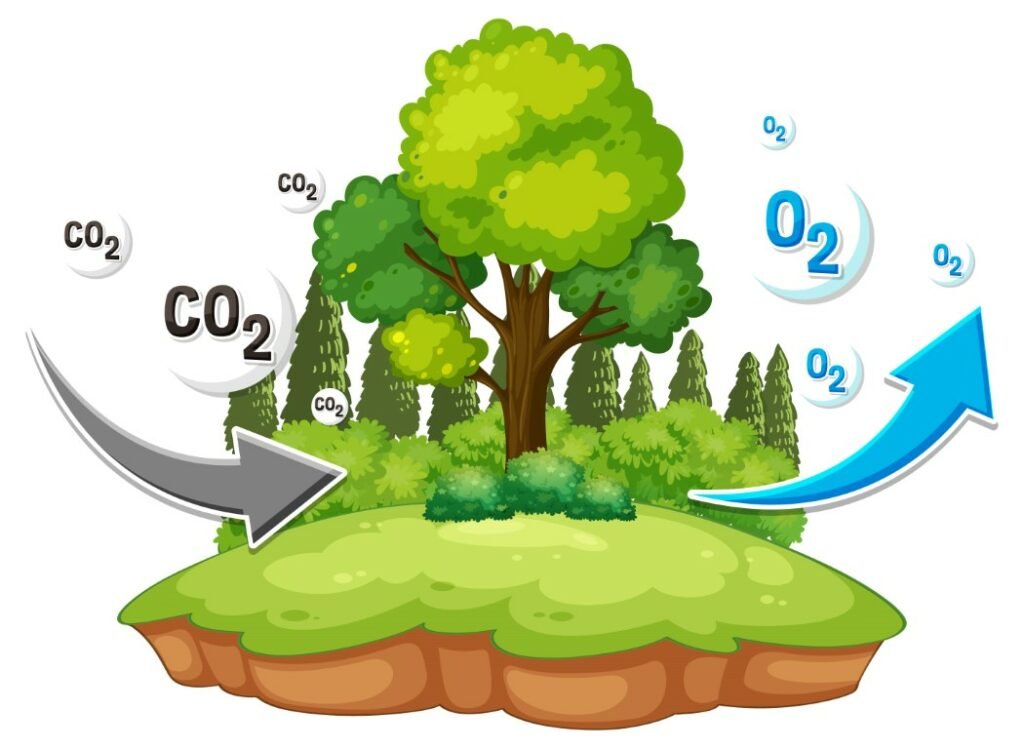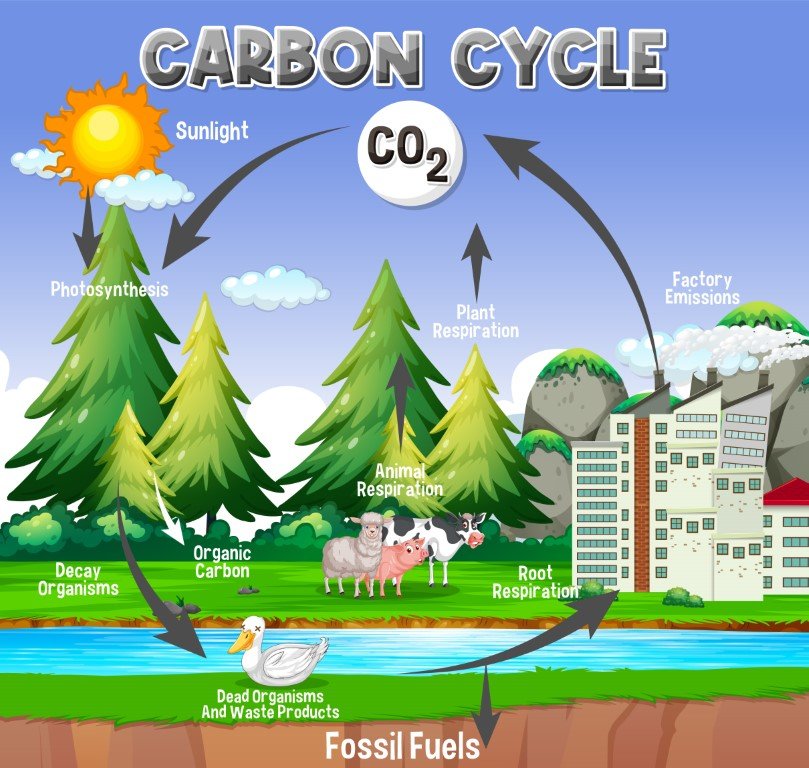Physical Address
304 North Cardinal St.
Dorchester Center, MA 02124
Physical Address
304 North Cardinal St.
Dorchester Center, MA 02124

Forests of Earth’s Lungs and Biodiversity Havens are more than just a collection of trees and foliage. Forests are amazing that support the balance of our earth. They are complex systems that are essential for both nature and people – they clean the air we breathe and are home to so many different species.
Forests act as the planet’s lungs by breathing in carbon dioxide and releasing oxygen, both of which are necessary for life। साथ ही, वे अन्य लाभ प्रदान करते हैं जो विश्वव्यापी पर्यावरणीय, आर्थिक और सांस्कृतिक विकास को बढ़ावा देते हैं।

Forests act as crucial carbon sinks, absorbing carbon dioxide and mitigating the greenhouse effect. This natural process helps regulate global temperatures and combat climate change.

Forests are biodiversity hotspots, housing an astounding array of plant and animal species. These ecosystems support intricate food webs and genetic diversity, contributing to the stability of all life forms.

The services provided by forests, including pollination, water purification, and soil enrichment, are vital for agriculture, clean water, and overall ecosystem health.
Indigenous communities have long revered forests for their cultural and spiritual value. Forests hold traditional knowledge and practices that enrich our understanding of sustainable coexistence.
Unabated deforestation leads to habitat loss, soil erosion, and disruptions in weather patterns. The repercussions affect both local and global environments.
Adopting sustainable practices is imperative to maintain forest health while meeting human needs. Balancing timber harvesting with regeneration ensures long-term benefits.
International initiatives and agreements strive to protect and restore forests. Collaborative efforts aim to combat illegal logging and conserve fragile ecosystems.
Reforestation and afforestation initiatives help counteract deforestation. These practices focus on planting trees to restore degraded areas and establish new forests.
Forests in urban settings offer recreational spaces, improve air quality, and enhance the well-being of city residents. They exemplify the harmonious coexistence of nature and humanity.
Forests play a pivotal role in regulating local and global climates, creating a cooling effect through evapotranspiration and influencing precipitation patterns.
Forests provide a myriad of resources, including timber, medicine and non-timber forest products. Their economic value underscores the importance of sustainable management.
Forests offer unique educational and recreational experiences, fostering a deeper connection with nature and promoting environmental awareness.
Ensuring the preservation of forests is a legacy we leave for future generations. Conservation efforts today will determine the quality of life for tomorrow.

Forests are lifelines that interconnect all living beings on Earth. From ecological equilibrium to spiritual inspiration, their significance is immeasurable. Embracing sustainable practices and championing forest conservation is our responsibility to safeguard the planet’s well-being.
Q1: What is the primary role of forests on Earth?
A: Forests primarily act as carbon sinks, absorb pollutants, and provide habitat for numerous species.
Q2: How do forests contribute to climate regulation?
A: Forests regulate climate by absorbing carbon dioxide, releasing oxygen, and influencing weather patterns.
Q3: What are the consequences of deforestation?
A: Deforestation leads to habitat loss, soil erosion, disrupted water cycles, and exacerbates climate change.
Q4: How can individuals contribute to forest conservation?
A: Individuals can support forest conservation by reducing paper consumption, supporting sustainable products, and participating in reforestation efforts.
Q5: What is the significance of urban forests?
A: Urban forests enhance air quality, provide recreational spaces, and promote well-being in densely populated areas.
In conclusion, forests are a testament to the marvels of nature, providing us with resources, inspiration, and balance. It is our duty to recognize their importance, protect them from degradation, and ensure they thrive for generations to come.